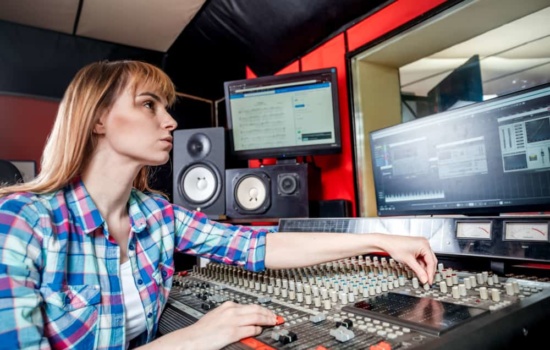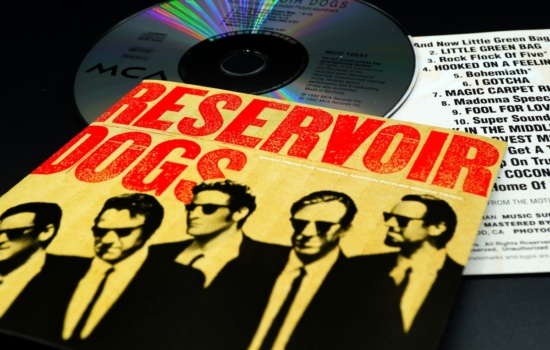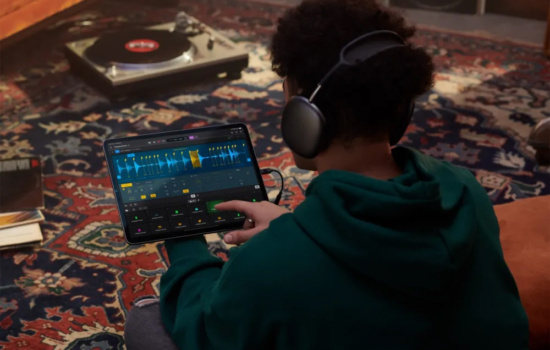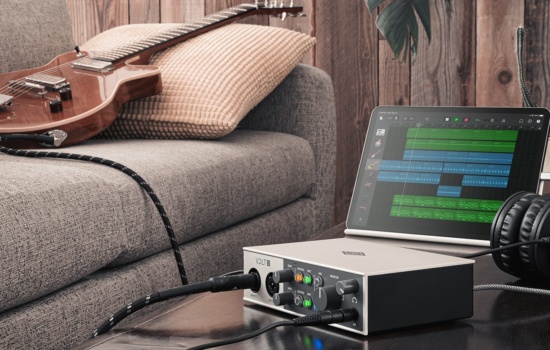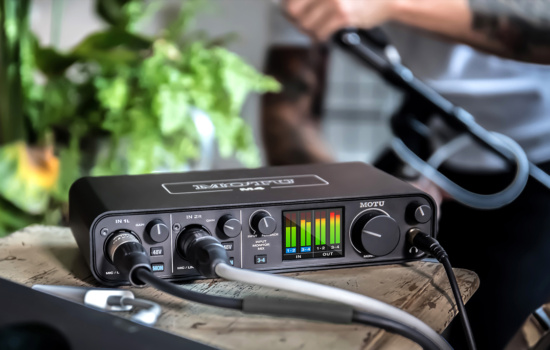Sound Technician
Career Overview
Sets up and uses soundboard and other sound equipment during concerts or performances, ensuring that levels are correct and the sound mix is right.
Alternate Titles
Resident Sound Technician, Audio Technician, Sound Engineer, Live Sound Engineer, FOH Engineer
Avg. Salary
$41,1291
Salary Range
$25K – $69K1
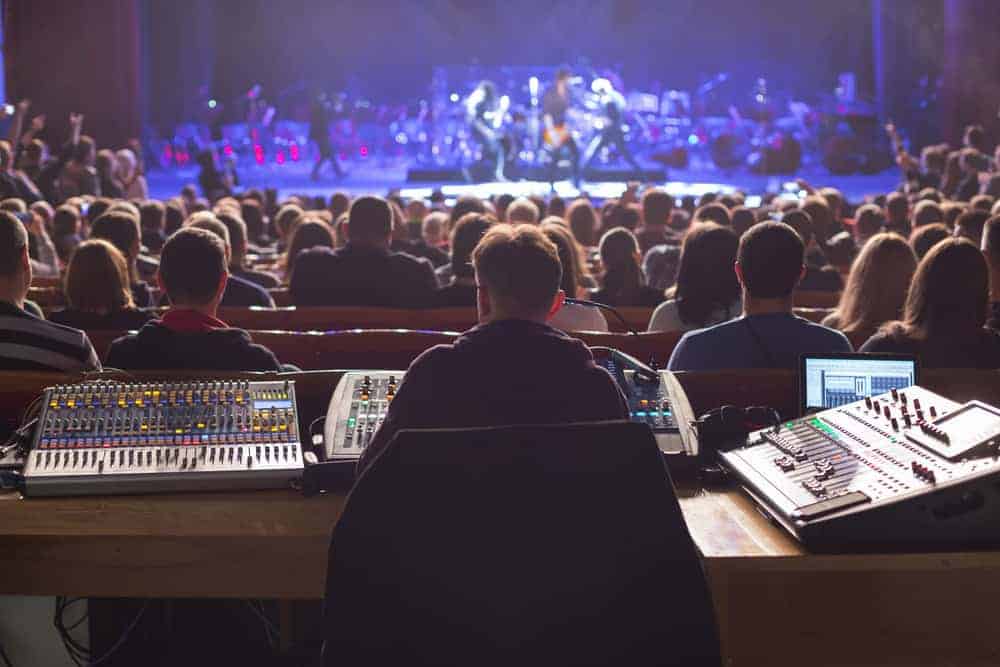
How To Become a Sound Technician
People also ask
Career Description
Sound Technicians use the soundboard and other audio equipment to ensure sound levels are correct and the sound is mixed well. Their work is the finishing touch on the artist’s performance, guaranteeing that the music sounds good for both the performer onstage and for the people in the crowd. In some cases they also assist with lighting and special effects.
They work with the Club General Manager, Talent Booker, Advance Person, Production Technicians, Maintenance Team, the act’s Tour Manager and the musicians themselves.
Is sound technology a good career?
Sound technology offers an excellent career path for those passionate about audio production and technology. With the constant evolution of entertainment mediums, including music, film, television, and gaming, the demand for skilled sound technicians continues to grow. Whether you’re interested in recording studios, live events, or post-production, sound technology provides diverse opportunities for professionals to showcase their expertise.
Advancements in technology constantly create new avenues for innovation, ensuring that the field remains dynamic and engaging. Pursuing a career as a sound technician can lead to fulfilling work experiences and the chance to contribute to memorable productions across various industries.
Salary
On average, Sound Technicians earn around $41,100 yearly. The salary range for Sound Technicians runs from $25,000 to $69,000.
Freelance Sound Technicians are paid per event. Sound Technicians who work regularly at a venue are salaried.
Are sound technicians in demand?
Sound technicians are indeed in high demand across various sectors, including entertainment, broadcasting, gaming, and live events. As the quality of audio becomes increasingly important when it comes to enhancing audience experiences, the need for skilled professionals who can capture, manipulate, and deliver sound is not just ever-present, but growing all the time.
Whether it’s ensuring clear dialogue in a film, creating immersive soundscapes for virtual reality experiences, or engineering flawless live concerts, sound technicians play a crucial role in delivering high-quality audio content. With technological advancements driving new opportunities and platforms for audio consumption, the demand for sound technicians is expected to remain strong for years to come, making it a promising career choice.
Hey, what do you think about trying our new Music Career HelperMusic Career Helper really quick? It’s totally free and could help get your career moving fast! Give it a try. It’s totally free and you have nothing to lose.
Career Outlook
Thoms says, “The hours are long, and it makes it pretty difficult to have much of a social life outside these walls so you need to make the most of your downtime. Luckily, Ministry is one place where our downtime is actually respected, so we tend to work around 45 hours a week – with the weekend trading sessions taking up the bulk of the night hours.
“We close at 6 am on Fridays and 7 am on Saturdays so those are usually 12-hour shifts, sometimes a little longer if we have to come in earlier for maintenance or for other events. During the week, we usually skip Mondays (nobody does good work on a Monday anyway) and work 9 am to 6 pm Tuesday, Wednesday, and Thursday, with one of us covering our Tuesday student night until 4 am.
“Getting in for 9 am after you’ve been working nights at the weekend is always a bit of a stretch but does help get you into the rhythm of the week.”
What is the difference between an Audio Technician, an Audio Engineer, and a Sound Technician?
In the world of audio production, there are distinct roles that contribute to the creation and manipulation of sound. Understanding the differences between an audio technician, an audio engineer, and a sound technician is essential for navigating this diverse field.
Firstly, an audio technician typically focuses on the operation and maintenance of audio equipment. They are responsible for setting up and troubleshooting audio systems, ensuring that microphones, speakers, amplifiers, and other gear are functioning correctly. Audio technicians often work in live event settings such as concerts, conferences, and theater productions, where their expertise in equipment operation and technical support is invaluable.
On the other hand, an audio engineer is more involved in the creative and technical aspects of sound production. They work with recording equipment and software to capture, edit, and mix audio recordings. Audio engineers have a deep understanding of sound theory, acoustics, and signal processing techniques. They collaborate closely with artists, producers, and other professionals to achieve the desired sonic quality for music, podcasts, films, and other audio projects.
Lastly, a sound technician typically works in the realm of post-production, focusing on sound design and audio post-processing. They manipulate recorded sound elements to enhance storytelling or create specific auditory effects. Sound technicians may work in film, television, video games, or multimedia projects, where their expertise in sound design and editing helps to immerse audiences in the audiovisual experience.
There is some overlap with these career titles, and some people do use them interchangeably. It’s best to understand what makes them different from one another, but not stress too much about always using the correct term.
Three Differences Between These Careers
When it comes to audio production, both sound technicians and audio engineers contribute their hard-earned essential skills and expertise to create captivating auditory experiences. However, despite their shared passion for sound, these professions are distinguished by several key factors. From training and responsibilities to salary and overall impact, there are notable differences between sound technicians and audio engineers that shape their roles within the industry. Understanding these distinctions can provide valuable insight for aspiring professionals seeking to navigate their career paths effectively and pursue opportunities aligned with their interests and aspirations.
- Training
- Where and How They Work
- Salary
- Overall Impact and Roles
Audio engineers typically possess more extensive experience, training, and formal education compared to sound technicians. They often undergo rigorous coursework or apprenticeships to develop a comprehensive understanding of audio principles, including recording techniques, signal processing, and acoustics. In contrast, sound technicians may receive training focused on equipment operation and maintenance, with less emphasis on the intricacies of sound design and engineering.
Audio engineers often hold supervisory positions, whether in a studio environment or during live events. They are responsible for overseeing the technical aspects of productions, collaborating with artists, and ensuring optimal sound quality. Sound technicians, meanwhile, may work alongside those engineers, assisting with setup, troubleshooting equipment issues, and executing specific tasks as directed. While both professions may operate in various settings, sound engineers typically occupy higher-ranking positions, exerting greater influence over the creative and technical aspects of audio production.
Audio engineers often command higher compensation compared to sound technicians. This wage discrepancy reflects the advanced skill set and responsibilities associated with audio engineering roles. Audio engineers’ ability to navigate complex audio systems, troubleshoot technical issues, and deliver high-quality sound experiences is highly valued in the industry, resulting in higher earning potential. While sound technicians play a crucial support role in ensuring smooth operations, their salaries may be more modest in comparison.
Despite these differences, both professions offer opportunities for growth and advancement within the exciting and always changing business of audio production. While audio engineers are more involved in the creative and technical decision-making processes, sound technicians play a vital role in executing tasks efficiently and ensuring the smooth operation of audio equipment.
Career Path
Chris Thoms, Production Manager at London’s famed Ministry of Sound club has extensive experience as a Sound Technician.
When starting off, he says, “If you’re freelance it’s very much gig to gig, if you’re in-house somewhere then it’s usually salaried with advancement taking place as you progress in your role or take on management duties” (such as his job as Production Manager). Advancement can also mean getting hired to work at a more prestigious venue.
After learning the necessary technical skills to work the soundboard, how do you get a job? Go out and talk to people who are currently working sound, and build those relationships.
Thoms advises, “Bother everyone… but in a way that isn’t annoying! I got almost every job I’ve ever had by being in the right place and showing an interest – most places welcome shadowing, and even if you don’t have the experience they’d need to send you out on a job, they will notice that you are keen.
“They’ll be more interested in whether you bring half decent chat to the table, and as long as you know one end of an XLR from the other they’ll find something for you to do. Ask the questions they don’t get asked all the time, and show an interest in learning on the job.”
- “Be proactive, and take every opportunity to shadow, help out for free, just turn up and make the tea, whatever it takes to get your foot in the door. Once you’re through the door, don’t mess it up by being annoying, lazy or getting too big for your boots.
- Be helpful when the situation demands it, invisible when you need to be, and bring some good chat – you’ll probably be working some long hours, so it can’t all be about noise and lights.
- Don’t work for free forever either. There will come a time when you’ll need to start getting paid. If they’ve not made a move within a couple of months then it’s time to move to the next gig…If they want you, they’ll call.”
Roles & Responsibilities
In the sound engineering and audio technology industries, the career descriptions of a sound technician or audio engineer are as dynamic as the sound waves they manipulate. From fine-tuning equipment to orchestrating the perfect mix for live events or studio recordings, these professionals wear many hats.
What actually fills their day-to-day agenda can vary greatly depending on their specific role, expertise, and the unique demands of the projects they tackle. Whether they’re cleaning up a concert’s audio setup or ensuring the dialogue in a film production is crystal clear, a sound technician’s routine is a blend of technical prowess, creative finesse, and adaptability. So, while the overarching duties may seem clear-cut, the devil truly lies in the details, shaping each technician’s journey in this multifaceted field.
- Equipment Setup and Maintenance
- Sound Mixing and Balancing
- Microphone Placement and Management
- Troubleshooting Audio Issues
- Collaborating with Production Teams
- Recording and Editing Audio
- Managing Sound Effects and Music Playback
- Ensuring Compliance with Safety Regulations
- Staying Updated on Audio Technology
- Adapting to Different Venues and Acoustic Environments
- Collaborating with Performers and Artists
One of the primary duties of a sound technician is to set up and maintain audio equipment for events or productions. This involves understanding the technical specifications of various equipment such as microphones, mixers, amplifiers, and speakers, and ensuring they are functioning properly. Regular maintenance tasks like cleaning, testing, and repairing equipment are also part of this responsibility. A sound technician must be proficient in troubleshooting technical issues that may arise during setup or operation, which usually leads to pretty stressful situations.
Sound technicians are responsible for mixing and balancing audio levels to achieve optimal sound quality during live events, performances, or recordings. This involves adjusting volume levels, equalization settings, and effects to ensure that each sound source blends harmoniously and is heard clearly by the audience or recording equipment. A keen ear for audio detail and an understanding of acoustics are essential for this task.
Proper microphone placement is key when it comes to capturing clear and balanced audio. Sound technicians must strategically position microphones to capture the desired sound sources while minimizing background noise and feedback. They also need to manage microphone usage, including selecting the appropriate types of microphones for different applications and ensuring they are functioning correctly throughout an event or production.
In the fast-paced environment of live events or productions, audio problems can arise unexpectedly. A sound technician must be skilled at quickly identifying and resolving issues such as feedback, distortion, or equipment malfunctions. This requires a combination of technical knowledge, problem-solving skills, and the ability to remain calm under pressure–and there’s sure to be a lot of pressure.
Sound technicians often work closely with other members of production teams, including directors, producers, stage managers, and lighting technicians. Effective communication and collaboration are essential for coordinating audio cues and ensuring that the audio elements of a production complement other technical aspects seamlessly.
Sound technicians may be involved in recording live performances, studio sessions, or other audio content. This involves operating recording equipment, capturing high-quality audio tracks, and making any necessary edits or enhancements during post-production. Proficiency in audio editing software and a good understanding of recording techniques are valuable skills for this aspect of this career.
In theatrical productions, film, television, and live events, sound technicians are often responsible for managing sound effects and music playback. This includes cueing and timing the playback of pre-recorded audio tracks to synchronize with live performances or visual elements. Attention to detail and precise timing are crucial for creating immersive audio experiences.
Safety is a priority in any production environment, and sound technicians must ensure that audio equipment is set up and operated in compliance with relevant safety regulations. This includes understanding electrical safety guidelines, implementing proper cable management practices, and taking precautions to prevent hazards such as tripping hazards or equipment overheating. This is a part of the career that can’t be faked or glazed over!
Audio technology is always evolving, with new equipment and techniques emerging all the time. Sound technicians must stay updated on the latest advancements in audio technology, including new equipment models, software updates, and industry trends. This may involve attending workshops, seminars, or industry conferences to expand their knowledge and skills.
Sound technicians often work in a variety of venues and acoustic environments, each with its unique challenges and characteristics. Whether it’s a concert hall, outdoor stage, recording studio, or conference room, a sound technician must adapt their approach to account for factors such as room size, shape, and acoustics to achieve optimal sound quality. This ability should become better and better with time.
Building rapport with performers and artists is essential for a sound technician to understand their audio preferences and requirements. Whether it’s a musician, actor, or public speaker, effective communication and collaboration with talent can enhance the overall audio experience and ensure that their needs are met during rehearsals and performances.
Experience & Skills
The only way to get the necessary experience and skills to work as a paid Sound Technician is to get out into a nightclub environment and learn on the job. Having people skills is also important in a business that depends so much on whether people want to spend late nights working with and relying on you.
Thoms says, “I was a nerdy kid who was always into both lighting and sound and I have always had an interest in music and production. I went freelance when I was 18 and started working in nightclubs, theatres, bars, recording studios and on live events as crew. I’ve done lots of different jobs over the years, and grown my knowledge in several disciplines, which helps to set me apart from the pack a bit.
“For the role I’m in now (Production Manager), I need to be as competent in specifying, designing and operating lighting, video and laser systems as I am building sound systems, mixing bands or monitors.
“Similarly, the job is actually very little about knowing which buttons to press, or even technically doing the right thing all that often – the most important aspect is that you’re approachable, work well in a team and have the ability to put artists and clients at ease, and deliver their show confidently and professionally.
“Your personality is the most important thing you can bring to the table. That’s what gets you employed above anything else.”
A Sound Technician should be someone other people want to work with, but they should also be responsible enough to deal with long hours and late nights. Thoms says that the type of person who’s right for the job is “someone with an absolute thirst for knowledge, passion for technology, understanding, and appreciation of epic-ness, and the ambition to push the boundaries of what’s possible.”
How long does it take to be a sound engineer?
Becoming a proficient sound engineer typically requires at least four years of formal education, typically through a bachelor’s degree program in sound engineering or a related field. However, the journey doesn’t end there; gaining practical experience through internships, entry-level positions, and on-the-job training is essential for honing skills and building a strong professional network.
Depending on individual career goals and specialization areas, it may take several years of hands-on experience to become proficient in various aspects of sound engineering, such as recording, mixing, mastering, and live sound reinforcement. Continuous learning and staying updated with industry trends and technologies are also crucial for career advancement in this dynamic field.
Overall, while the path to becoming a sound engineer may require dedication and perseverance, the rewarding nature of the profession makes it a worthwhile endeavor for those passionate about audio production and technology.
Education & Training
Many aspiring Sound Techs start off by essentially apprenticing themselves to working Sound Technicians, assisting them for free in exchange for their experience and tutelage. A degree in production or audio engineering from a trade school or college can also help an aspiring Sound Technician learn the ropes.
Hands-on experience is essential for learning, so any program you’re interested in should have internship or work opportunities. And be sure that the program you attend is well-regarded and has instructors with current, real-world experience.
Thoms says, “Both ways can work. The only education in sound I actually undertook was a Music Technology AS level which was pretty pointless – I ended up helping to teach the course because there was nobody qualified to run it, and I knew my way around Cubase fairly well! Education isn’t for everyone, but there are some great courses out there these days, far more than when I was looking at uni back in the early 2000s.”
Is a sound engineering degree worth it?
A sound engineering degree is undeniably worth pursuing for individuals aspiring to enter the field of sound technology. While some may argue that hands-on experience is sufficient, a formal education in sound engineering provides essential theoretical knowledge, technical skills, and industry insights that can significantly enhance career prospects.
Many employers looking to hire sound technicians prefer candidates with a sound engineering degree due to the comprehensive training and specialized coursework these programs offer. Earning a degree demonstrates dedication and commitment to the profession, which can set applicants apart in a competitive career market. Sound engineering programs often provide access to state-of-the-art facilities and opportunities for networking with industry professionals, further enriching the educational experience and preparing graduates for success in the field.
Additional Resources
There isn’t a specific union for Sound Technicians at nightclubs and concert venues, although some might be members of the Audio Engineering Society.
Thoms suggests using online resources to further your education and skill set. “So much information is out there on the internet if you download manuals and free software from manufacturers’ websites you can learn how most lighting and sound consoles work, so when you’re faced with one in the real world, you’re already pretty up to speed on how the thing works.
“Once you know a couple of desks you can very quickly learn others, and eventually, it really doesn’t matter what desk they give you (as long as it’s not an LS9, they’re just horrible),” he says.
FAQ
What is the single biggest suggestion you would give to someone wanting to get into this career?
“Be diverse. Learn to do several things well, then you’ll never be short of work.”
What’s the #1 mistake people make when trying to get into this career?
“Thinking that it’s all about being a great Engineer and forgetting the human aspect of the job. If you can’t string a sentence together, have the personality of a ham sandwich or you regularly say wildly inappropriate things in front of artists and corporate clients, then nobody will care how good at your job you are!”
What is the question people should ask about this career but rarely do?
“Do I need to wear earplugs? Yes, Yes, Yes – get some high quality molded ones. We use ACS custom molds. And get a variety of filters so you can work out a comfortable level which offers you adequate protection whilst allowing you to hear what you’re doing. If you ruin your ears on the job, then you’ll have to find something else to do for a living.”
What is one thing I should have asked which I didn’t?
“How do you stay awake all night? Very simple – we have a Nespresso machine in front of house.”
If you could describe in one word what makes you successful, what would it be?
“Coffee.”
Sources

Chris Thoms
Chris Thoms is the Production Manager at London’s famed Ministry of Sound club. He has worked as a Producer, Engineer, and DJ at labels and clubs across England.
His work as an audio professional has been written up in FOH Online, Sound & Vision, and Martin Audio.
References
- 1. "Sound Technician Salaries". Glassdoor.com. published: Dec 22, 2019. retrieved on: Dec 19, 2019



